Fair Trade and Worker Welfare
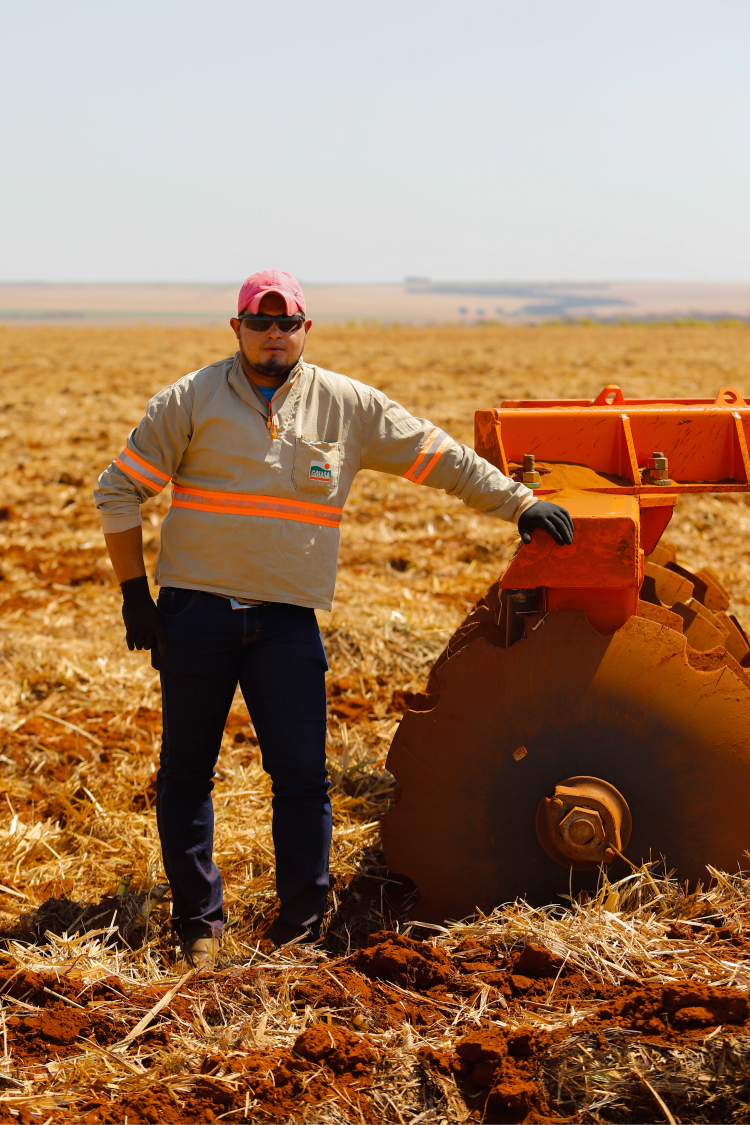
Nearly 3 million people around the globe die every year due to risk factors in the workplace, including accidents, work-related diseases, and extreme working hours. Unfortunately, the economically disadvantaged seem to suffer most; research conducted across 121 countries found that workers who reported it was ‘very difficult’ to get by on their current incomes were more likely to experience harm from workplace hazards than those more financially comfortable.
The COVID-19 pandemic only exacerbated the situation forcing the world to become more aware of the importance of implementing and enforcing strong occupational safety and health systems.
The benefits of strong workplace safety standards are immeasurable. A key advantage is reducing unnecessary loss of life and the subsequent impact felt by the families they leave behind. Another is reducing injuries and illness, as these can have devastating effects – both emotional and financial – on individuals and their loved ones. At the same time, the knowledge that workers are safe in their place of employment can lead to greater peace of mind for workers and their families.
Management and business enterprises also benefit from a strong safety and health culture as it leads to reduced costs, improved morale, and enhanced production. With fewer days lost to injury and illness, improved relations with an engaged labor force, and a spirit of openness and collaboration, an enterprise can reach new heights of success, benefiting stakeholders and society overall.
When a company’s safety standards are verified through a credible program like Fair Trade Certified™, brands, retailers, and traders can source their products with confidence, helping improve traceability and credibility for their business, and creating shared value for consumers who care about shopping ethically. The end game is to generate a true win-win scenario for everyone involved.
Fair Trade and Safe Working Conditions
Fair Trade USA™ recognizes the establishment and maintenance of safe working conditions as essential to improving lives and enhancing sustainability. That is why our rigorous standards include specific requirements related to workers’ protection, sanitary conditions, and clean water access. Here are some examples of those requirements:
- Adequate first aid supplies and access to medical services are provided in the case of workplace incidents.
- Machinery and equipment on the site, as well as worker transportation, are maintained and equipped with appropriate safety devices.
- Employers must make information available to workers on the risks associated with any hazardous work, including higher risks associated with certain medical conditions.
- In hot climates and in hot workplaces, workers are provided with suitably cool water and shade for rest breaks to protect against heat stress.
- Workers have the right to reasonable accommodations for any work that poses risk to their health.
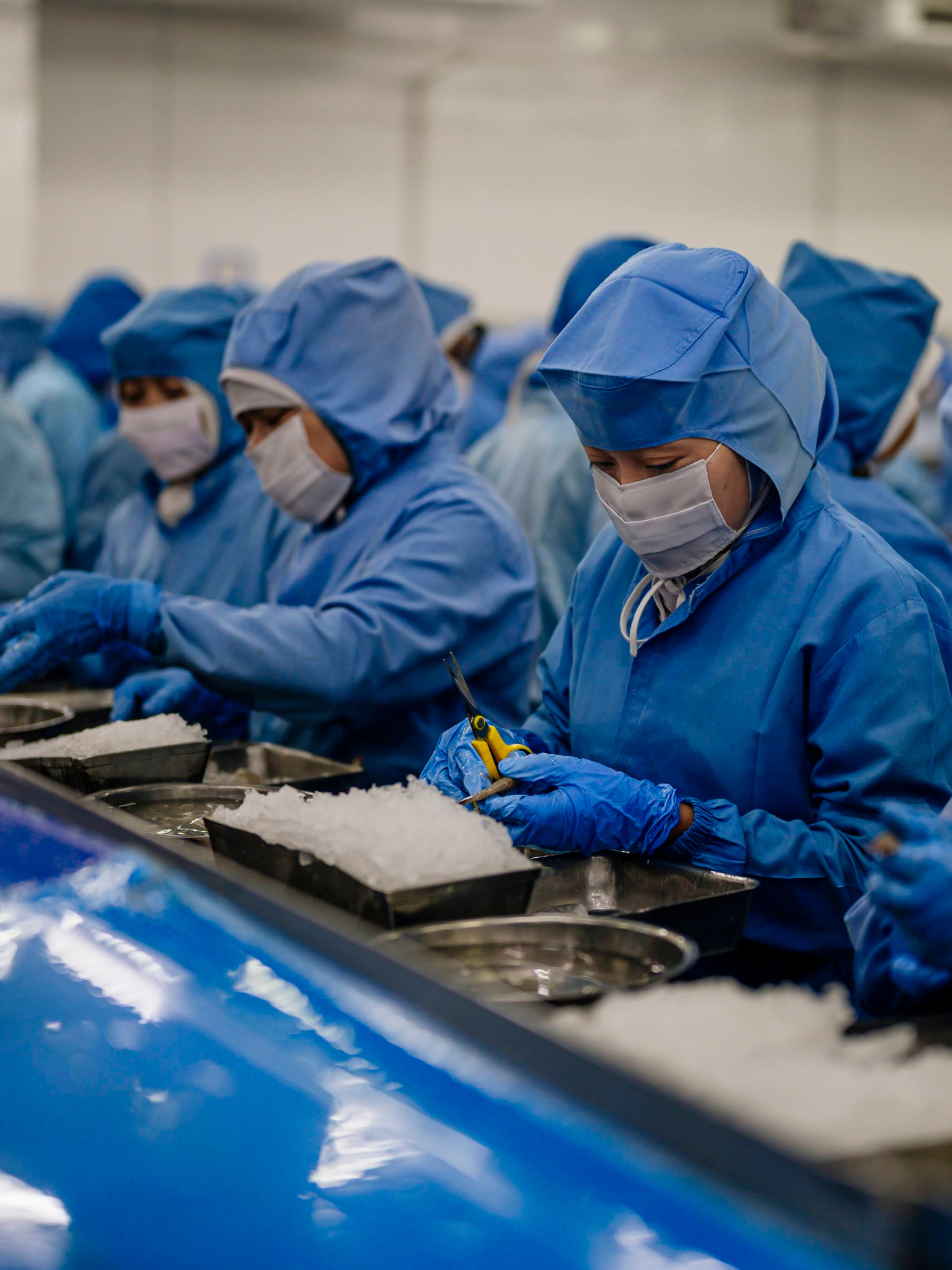
Worker Welfare Findings from the Field
Beyond keeping workers free from injury and illness, Fair Trade standards prioritize safe working conditions to ensure workers feel confident confident and secure in their employment environment. Data from workplaces applying our standards show a significant improvement in accidents and sicknesses prevented, as well as a feeling of safety on the job.
Read about some of the research findings around worker welfare across Fair Trade environments.
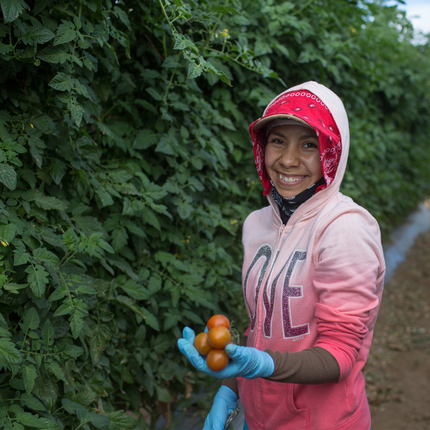
Safety on Fair Trade Farms
A major U.S. retailer sourcing their produce from Fair Trade Certified tomato farms in Mexico indicated only 6% of workers reported accidents in the last year, while 94% said that they always felt physically safe while working.
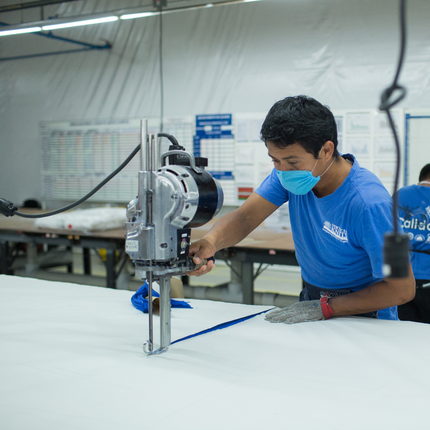
Safety in Fair Trade Factories
We surveyed over 11,000 workers employed at factories across China, India, Mexico, Nepal, and Vietnam that implemented Fair Trade Certified standards between 2016 – 2022 and learned that 90% of the respondents now feel safe working there (vs. 65% in 2016).
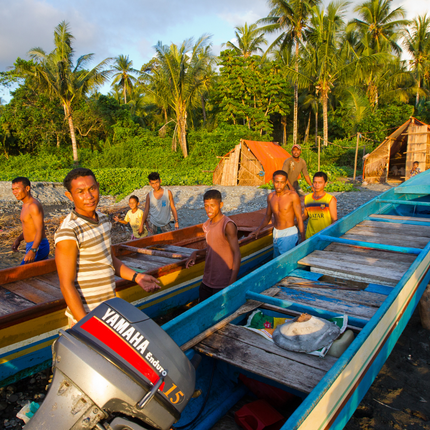
Safety at Fair Trade Fisheries
The implementation of our standards at Indonesian fisheries has shown a steady improvement in worker safety over time, with survey respondents indicating that only 45% of fishers always wore lifejackets at sea in 2016, which rose to 52% in 2018, then 72% in 2020; now over 90% indicate that they always feel safe working on their vessel.
Safe Working Conditions Report
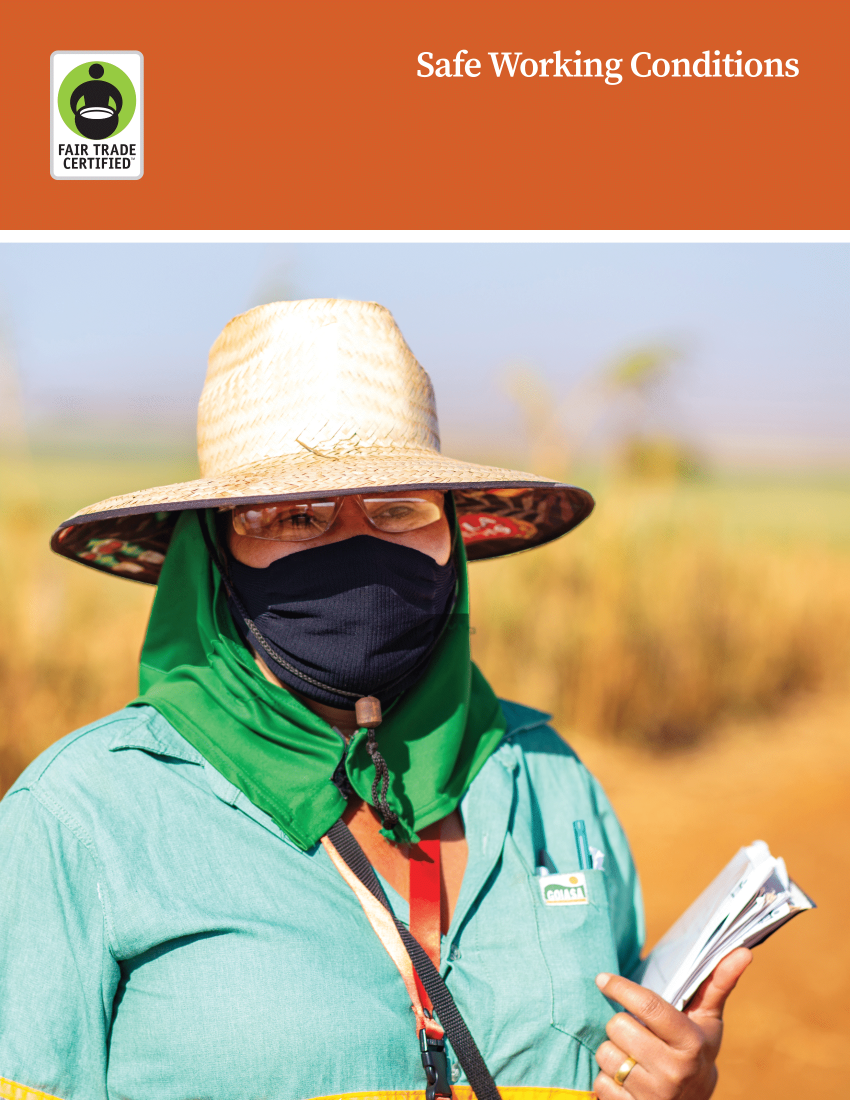
In this report, you will learn about:
- The advantages of a safe working environment for workers and businesses
- Fair Trade USA’s approach to workplace safety and standards
- How Fair Trade standards promote worker welfare by addressing personal well-being, access to on-site safety equipment, clean drinking water, and proper sanitary conditions
- How we track progress toward the United Nation’s SDGs
Reflections from Fair Trade Participants
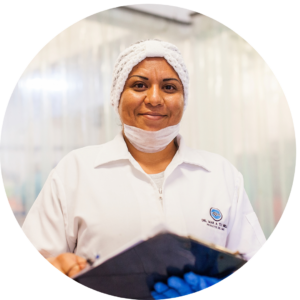
Brenda Gaudalupe Prado Rodriguez
“Fair Trade is a great incentive to keep improving; it’s a sign of trust. I enjoy working for a company that has this certification and high standards.”

Logandas Panika
“With the help of Fair Trade, life has improved here.. at Maud, many amenities have been issued to our workers to help them do their jobs comfortably and safely and improve their living situation. Many of the benefits our workers received go above and beyond those outlined in India’s Plantation Labor Act.”
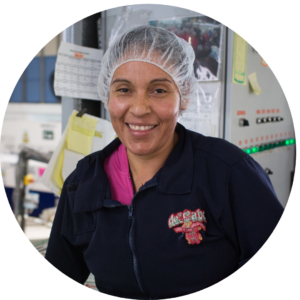
Luz Medina
“I see Fair Trade Certified as a great opportunity to improve labor standards in general. It allows the workers to guide us in understanding their needs. So far, what I have heard most, is the need to improve the working conditions, especially the mess halls.”
Damaso Méndez Vásquez Shares His Story
Get Started with Fair Trade Certified
Learn about sourcing, selling, and promoting Fair Trade Certified products and get started on your better business journey!